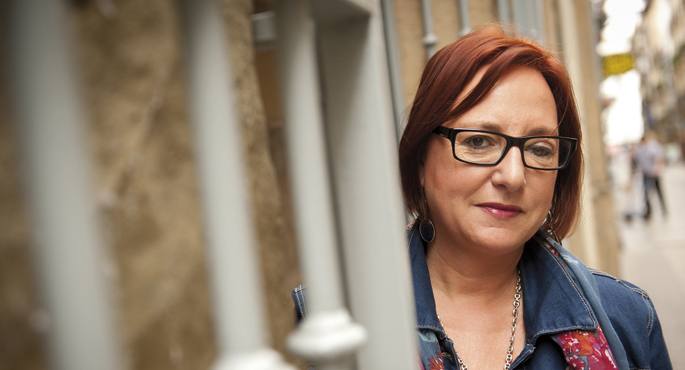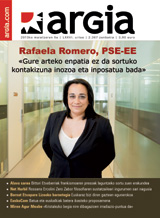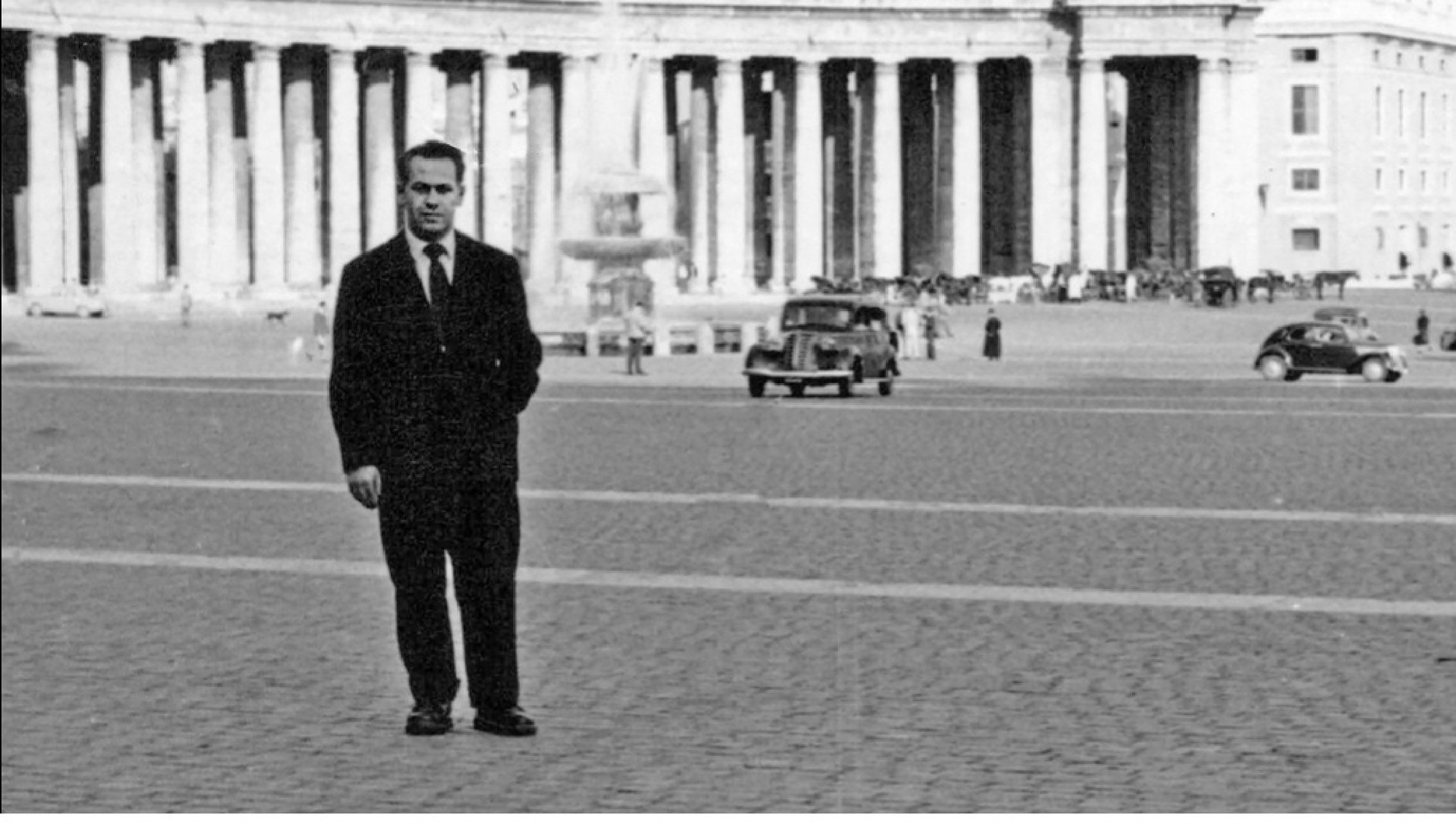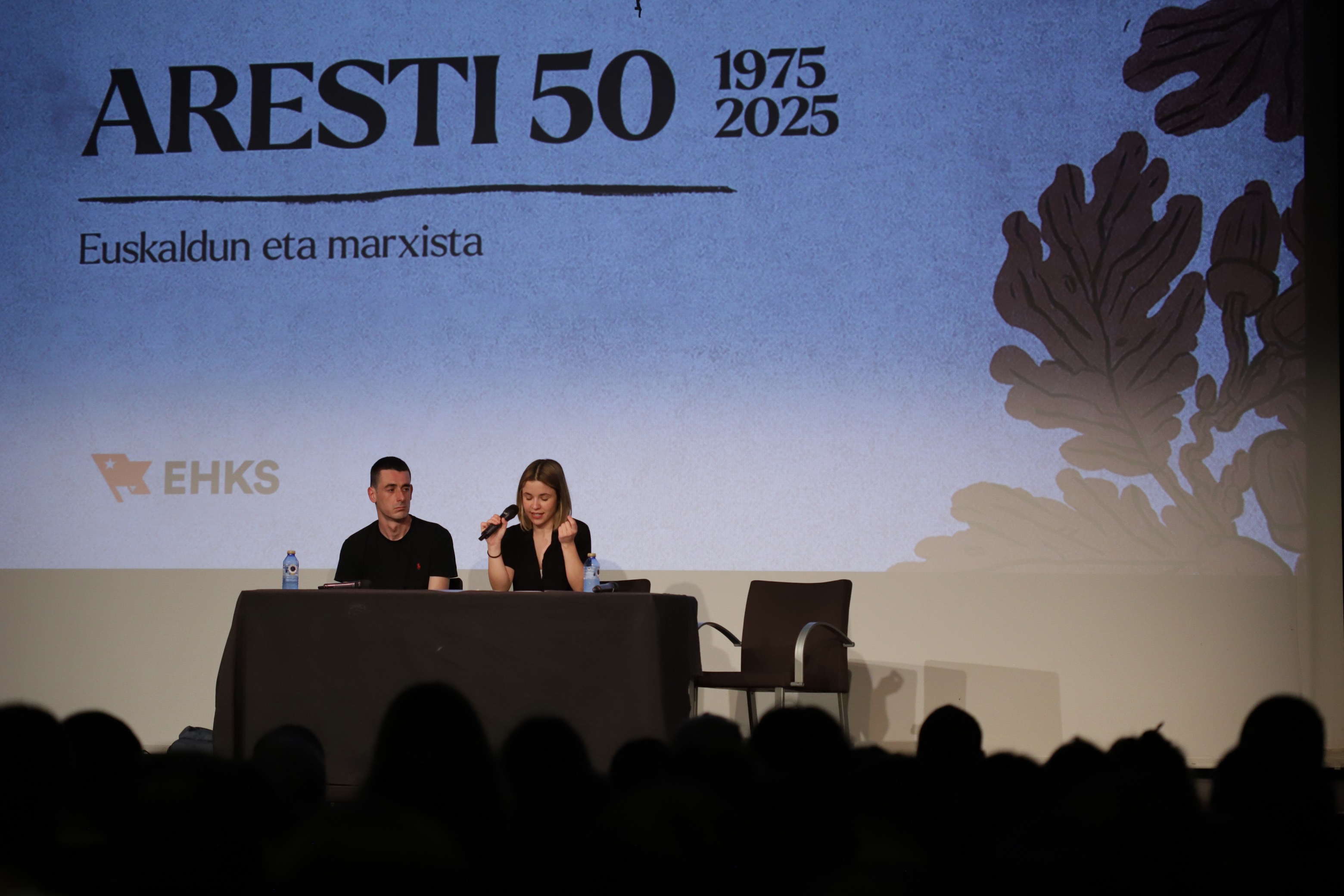- See Agur Meabe (Lekeitio, 1962) talks about loss and focuses his work on the novel Kristalezko begi bat (Susa), a crystal eye. The emptiness of the lost eye in his youth, as a glass eye has filled him, the gap left by other painful losses to fill him with literary prosthetics, has stripped himself, or the character, playing with a flexible boundary between reality and fiction.

He's used the glass eye in the title, but it's much more than the title. What dimensions does it have?
In the story it has several values: on the one hand, a real value, because it is a brand of identity, a prosthesis that represents the eye I lack; on the other hand, it has a metaphorical value, because I use it as a symbol of the losses or extractions I have had in life; and finally, because literary value is a topic that has been manifested since ancient and often in the history of literature, whether it be in realistic texts.
In the book, the glass eye is the irradiance point of my divagations, a repetitive element that devours the narrative: most parts come to it or from there, through more explicit or implicit links.
He has used the concept of self-imitation to define the crystal eye. What does this mean?
I've used the concept of self-imitation to differentiate myself from the autobiography. The autobiography is a genus similar to the vivid curriculum and is normally organized according to a chronological axis. To define a crystal eye, I find self-imitation more appropriate, because although the starting point is real experiences, there are also parts invented in the story. The question is the mimesis of reality, not the fidelity to reality. In other words, I'm the character, but I'm not always, and when I'm not, it looks like me, or it plays my style.
This is what is said in the last pages when a comparison is made between the text and the glass prosthesis: the glass eye is not the real eye, but a realistic copy of the real. Similarly, writing a book is something like making a prosthetic. Therefore, I have built a literary artifice, whose pillars are very diverse: the lived, what is supposed to have lived, what has been wanted to live, the inanimate... A “paper self” has been created, which is the sum of my self’s projections.
The passerby looks at the garden almost by chance, but in an uncomfortable way. Have you searched for the reader's discomfort?
Not expressly, but I know that some passages can cause such discomfort, or emotion, shame, morbid, curiosity, even mercy, or simply coldness… depending on each reader. These reactions seem to me to be the natural responses of the receiver who is assimilating the message.
At least you've sought complicity. Sometimes you talk directly to the reader. At the end of some sections he has written some notes. In the end, you give him explanations. Is there a desire to control the reader?
Complicity, yes, I've searched, empathy. From the very beginning, when he begins to write this intimate notebook, the narrator proposes to the reader a kind of pact: he heads to a “you”. To the extent that identification is possible, it requests attention, offers explanations, poses questions, presents doubts and even gives justifications, when it perceives the prejudice and criticism of the silent listener on the other side.
When you talk in the first person, also stressing that you're talking about yourself, you have two options: either you go towards self-censorship, or you go towards a radical statement. Directing a “you”, a close appeal, has helped me to confirm my freedom of expression, gave me a tone to share my intimacy. If I hadn't imagined a patient reader, or a person next to me, I would have taken away all the footnotes, for example.
However, this understanding of the reader was not necessary at any time. Once you take the step of undressing yourself, you have to have it with all the consequences.
The dividing line between reality and fiction is blurred in the book. The sections Self-portrait, Dangerous Age or Mirror, for example, seem very autobiographical. The character makes readers believe that Miren is Agur Meabe himself. And in the end, all of a sudden, it calls the reader into question. What is that? A way to play with the reader? Or to protect yourself?
I had no intention of playing with the reader, but at the end I felt a kind of obligation to warn the reader, as I have already said, 100%. For example, to contextualize some reflections, it had to offer scenarios. There is no total unity of spatial and temporal actions. But that is not in contradiction with the honesty of what we have said.
When I ask the reader if he will literally believe everything I told him, I mean that it is you who have to put the dividing line between reality and fiction, wherever you want, and even if you don't, it doesn't matter.
In the book entry there is a phrase from Coeetze: “And are we all fictional creators? What if we all invented the history of our lives?” That's the idea: a common anecdote can become a literary result, and in addition, it's likely that by counting our lives, we will make free versions, intentionally or intentionally.
“I am a ridiculous example of bipility. On this occasion, the Basque poetry rose does not go further. He deserves to be touched by the txistu.” Sometimes you give yourself/a character wood, making a strong self-criticism. Fear of criticism or criticism?
The character doesn't stop for examination, as a bad streak is happening. Somehow, he looks in the mirror, both to accept his being and to jump from there to creation. They are parallel actions: just as the text is the product of the writer, the author is also the product of the text. Once again, aware of limitations, conditions, impotence and difficulties, he smiles bitterly. This phrase is an example of irony. Another moment, when Meibi, as a poet, speaks of himself in verse.
You've been naked. What if people only see nudity, regardless of how they undress? Do you see the person forgetting the writer?
In fact, the point of risk is naked, along with the point of fraud. The author has sometimes made the most less, sometimes the photoglamour (which is usually done in specific journals with a colored cloud and a thematic decoration) and sometimes becomes naked, frontal and integral. What is the purpose of nudity? In this case, valuing a normal private life, which could be similar to many others, making literature.
How the reader was going to interpret nakedness, see if I would see commercial exhibitionism, or if I would get bothered to meet the author to believe in history, I had, in part, these kinds of concerns. It was clear, however, that my literary proposal was based on sincerity and realism.
This text is “a glass mirror”, “a patchwork frame”. Would you explain why?
I say “A glass mirror” to indicate that it is the literature of sharpness, which is reflected to oneself; and the patchwork style to emphasize that it is a work made by parts. And that is that, although we have called it a novel, this text can be framed in the genre of the private notebook or journal, and they are also completed by parts, writing successes, reflections and opinions progressively, without the need for a só narrative structure lida.De similarly, the technique of
patchwork consists in the manipulation of loose pieces of fabric to achieve a harmonious whole (in passing, it also aims to take advantage or recycle). This idea is directly related to what is said about life elsewhere: “A collage is the events that affect us, the fragments of a general history that fills with meaning as it is completed: life is a dress that is gaining grace as they are sewing.” Like the text, it is given in work in progress. Also at another time, when the protagonist finds his old photographs in his parents’ house, he says that they are “loose cells of a biographical organism.” It's a mosaic concept, not a novel one.
You have used the most scientific, aseptic tone to describe the accounts of the eye. Is it easier to write losses and physical pain than others?
It's much easier. The detailed exposition of thoughts, impressions, judgments, thoughts, etc. has weighed me and made me complex. Abstract accounts tend to have several nuances, and words are sometimes almost unable to describe them.
The novel is full of quotes and references from writers and musicians. Why?
It's a book with a lot of metal content. These phrases are directly related to the needs and the desire for certainty of the character. They are, in a way, arguments of authority to ensure their views. Often, outside phrases give us the light to explain to us the causes of our lives or our actions. They have the advantage that they give you the form of a dressed writer… And they also have disadvantages, because their mediocrity stands out.
“And when it comes to making a profit and loss balance, it cannot be said that an eye receives it, neither in sight nor in brightness.” But you have taken advantage of the losses and pain they cause, at least literally.
That was the goal. In this sense, the book has had, on the one hand, a therapeutic aspect, although I do not like it, because it seems that the artistic intention is below the emotional shock. On the other hand, it has been an enriching process, which has served me to train writing. I wanted to make a serious literary proposal; otherwise I would not have given anything bitter thought to the approach, the structure or the use of language.
“I don’t know where this experiment started on 9 September 2011 will lead me.” Do you know that now?
I met the challenge I had set myself. It has been exhausting and enriching work, and I am glad that it has been widely and warmly welcomed, in general. In short, I will begin to publish it in Spanish for next year. I don't know what's going to happen next. Life will provide me, like so far, with the things to write about.
Now that everyone has become more Franciscan than the Pope, it’s worth remembering our unsurpassed classics. There was one in the 17th century, his grace was Arnaut Oienart. And since we can’t immerse ourselves in all his works, today we will praise O.ten youth in... [+]
Aurreko tertuliako galderari erantzuteko beste modu bat izan zitekeen, akaso modu inplizituago batean, bigarren solasaldi honetako izenburua. Figura literarioaz gaindi, pertsonaia zalantzan jartzeko, edo, kontrara, pertsonaiaren testuingurua ulertzeko saiakera bat. Santi... [+]
Astelehen honetan hasita, astebetez, Jon Miranderen obra izango dute aztergai: besteren artean, Mirande nor zen argitzeaz eta errepasatzeaz gain, bere figurarekin zer egin hausnartuko dute, polemikoak baitira bere hainbat adierazpen eta testu.
Martxoaren 17an hasi eta hila bukatu bitartean, Literatura Plazara jaialdia egingo da Oiartzunen. Hirugarren urtez antolatu du egitasmoa 1545 argitaletxeak, bigarrenez bi asteko formatuan. "Literaturak plaza hartzea nahi dugu, partekatzen dugun zaletasuna ageri-agerian... [+]
1984an ‘Bizitza Nola Badoan’ lehen poema liburua (Maiatz) argitaratu zuenetik hainbat poema-liburu, narrazio eta eleberri argitaratu ditu Itxaro Borda idazleak. 2024an argitaratu zuen azken lana, ‘Itzalen tektonika’ (SUSA), eta egunero zutabea idazten du... [+]























